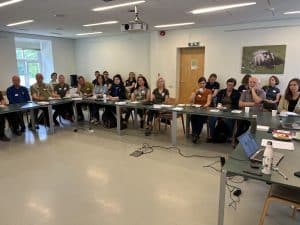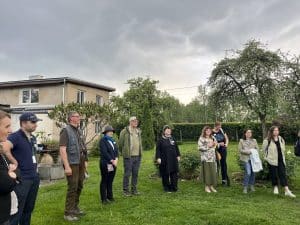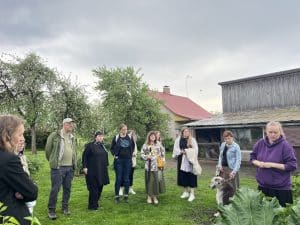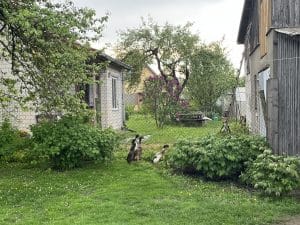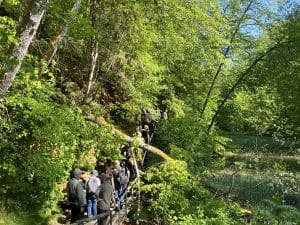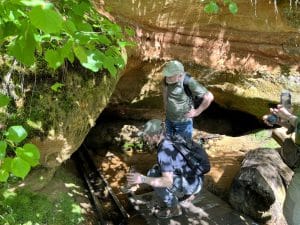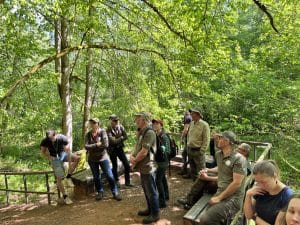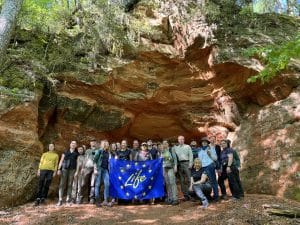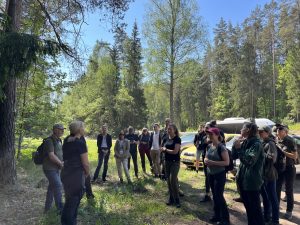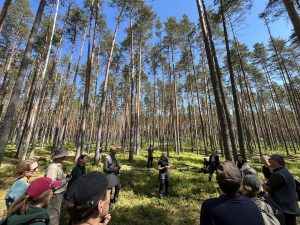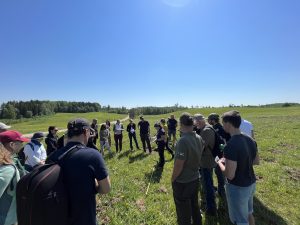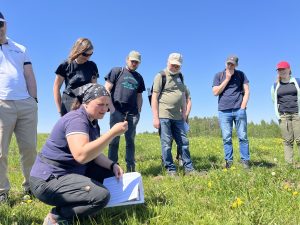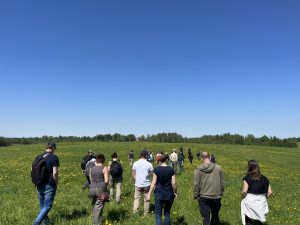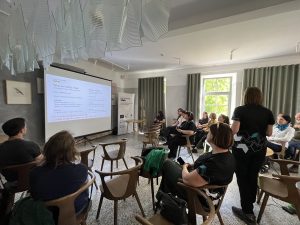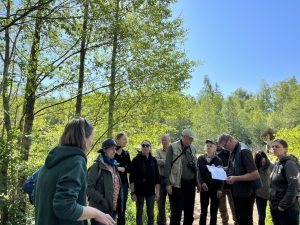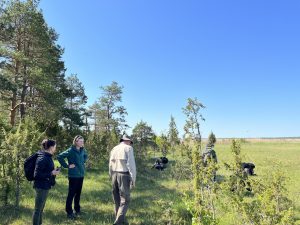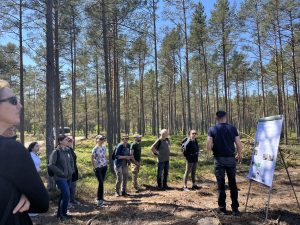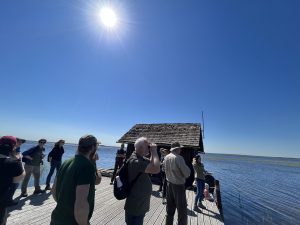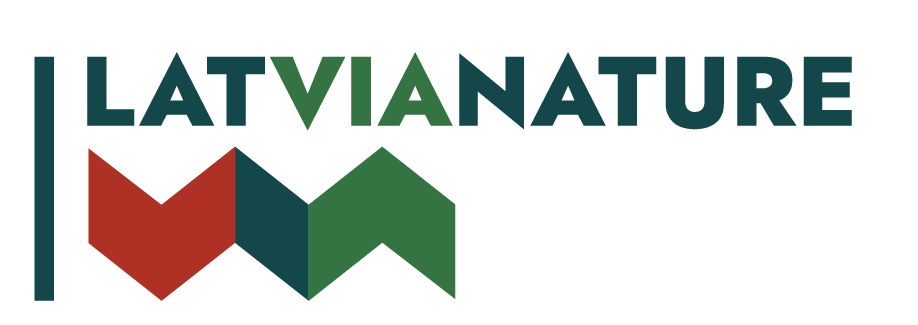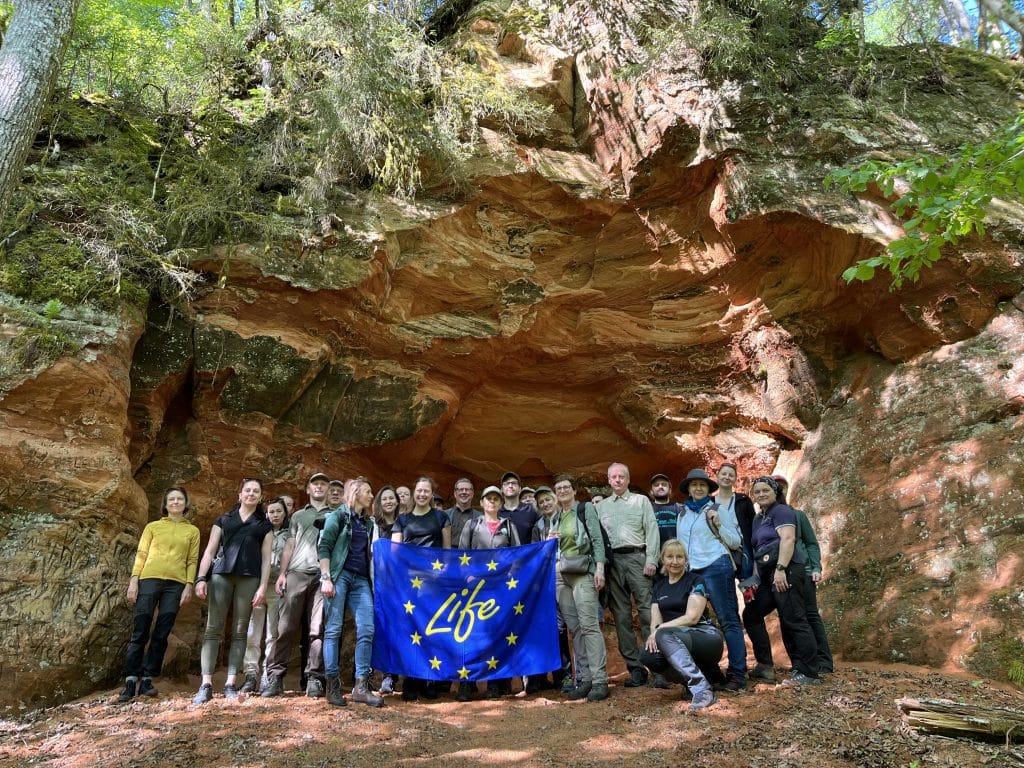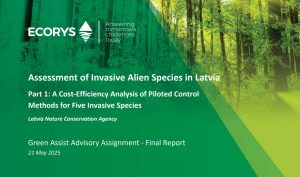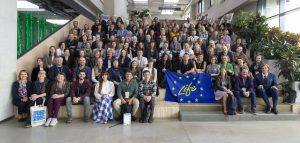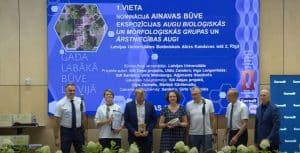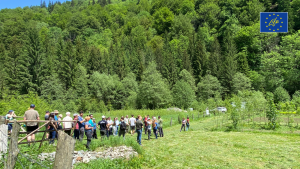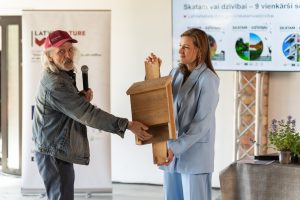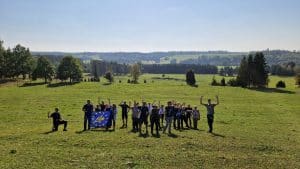During the event, partners from the LatViaNature project, including experts from the Nature Conservation Agency, Ministry of Environmental Protection and Regional Development, University of Latvia, Latvian Rural Advisory and Training Centre, Latvia’s State Forests, and Latvian Fund for Nature, shared their accomplishments in the project. The experts discussed various LatViaNature activities:
- Motivating mechanisms for biodiversity conservation on private lands – creating pilot programs “Blooming Meadows” and “Living Forest”,
- Development of the invasive species management system,
- Eradicating invasive species and testing new approaches and methods for invasive species control and eradication,
- Enhancing nature conservation planning,
- Developing and testing methods for monitoring the management efficiency of grassland and forest habitats,
- Developing the Grassland Product Label for products and services produced in natural grasslands,
- Analyzing data on habitats of European importance and elaborating species and habitat conservation objectives and favourable reference values,
- Establishing a centralized nature data portal.
During field trips that complemented the presentations, Lithuanian nature experts gained a broader insight into the project’s activities. For instance, they learned about innovative methods implemented for controlling invasive species by visiting Ilze Šarna’s mobile flock of Indian Runner ducks, which have proven effective in eradicating invasive Spanish slugs. This initiative was implemented within LatViaNature small grants competition.
The delegation also visited the LIFE FOR-REST project’s forest habitat management demonstration area, where dry pine forests were managed several years ago to improve habitat quality. In Latvia’s State Forests’ forest habitat management areas, discussions centred on the application of controlled burning methods, which may promote biodiversity in planted pine forest areas.
Participants of the networking event also heard an experience story from Kaspars Goba, a private landowner participating in the LatViaNature “Blooming Meadows” pilot program and his endeavours to promote grassland biodiversity in his property. Biodiversity monitoring in grasslands was demonstrated by the LatViaNature project. The experts also visited the biodiverse sites of lakes: Kaņieris and Engure , as well the Dundurpļavas area, learning about nature management measures in Latvia.
We would like to thank Lithuanian colleagues for their interest, knowledge sharing and really inspiring atmosphere within these three intense days. Nature conservation and management issues are not so different in both countries – hence it makes experience exchange of management approaches chosen even more valuable.
